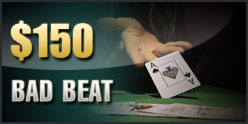HARRISBURG — Republican state lawmakers who are resisting tax increases to balance a deep budget deficit are taking steps toward the state’s third expansion of gambling in six years as an alternative source of cash.
To the Wyoming Valley’s Mohegan Sun Pocono casino, that could mean more profits of its own.
Among the bills are measures that would allow Pennsylvania’s casinos to offer Internet gambling or station slot machines in new locations around the state.
House Majority Leader Dave Reed, R-Indiana County, gave gambling expansion a prominent place in his list of priorities. Exploring the possibility should come before lawmakers raise taxes, he said Wednesday after the House defeated a $2.4 billion tax package presented by Gov. Tom Wolf.
“I think we need to have a discussion first on what other revenues are on the table,” Reed said. “We need to come to a conclusion on liquor reform. We need to address cost drivers like our pension system. We need to look at gaming options.”
Lawmakers who support it estimate that an expansion of some sort could mean hundreds of millions of dollars in one-time license fees plus collections from taxing a new stream of gambling profits. It also would keep the state’s industry current in a competitive and fast changing environment, supporters say.
Potential growth
Mike Bean, president of the Mohegan Sun Pocono casino in Plains Township, said Monday his operation views Internet gambling as an area of potential growth.
“We generally favor internet gambling for the brick-and-mortar casinos in Pennsylvania,” he said, adding that making it a profitable enterprise requires a tax structure with “the right balance” in terms of generating revenue for the state.
“We believe that New Jersey is a good model,” he said.
The Garden State currently imposes a 15-percent tax on online-gaming revenues.
Bean said the casino isn’t worried that internet gaming will cut into its traditional slot and table gaming operations. “We view it as an opportunity to give our customer a second visit — from home,” he said.
Pennsylvania state government has been in a partial shutdown for more than 100 days as the Republican-controlled Legislature resists Wolf’s request for a multibillion-dollar tax increase that the first-term Democrat says is necessary to resolve the state government’s budget deficit and begin correcting steep disparities in public school funding.
The Wolf administration is open to a gambling expansion, if it is part of a comprehensive package that resolves what the administration projects to be a multibillion-dollar long-term deficit, a spokesman said.
“But I don’t think we should confuse this with long-term sustainable revenue that’s going to fully fix the budget deficit,” Wolf administration spokesman Mark Nicastre said.
Top Democratic lawmakers have yet to voice support.
Issues raised
House Minority Whip Mike Hanna, D-Clinton County, said he had yet to survey rank-and-file Democrats on it. Senate Minority Leader Jay Costa, D-Allegheny County, was more resolute, saying his caucus is firmly against balancing the budget on the backs of gambling addicts and an unpredictable revenue stream.
“That’s a path we don’t want to go down,” Costa said.
Even supporters acknowledge that balancing the budget on a gambling expansion is problematic: It is very difficult to estimate how much actual gambling revenue will materialize.
Case in point: Lawmakers legalized gambling in bars in 2013, estimating that a 60 percent tax on games of chance would bring $150 million a year to the state treasury.
Practically nothing has materialized. It contributed $554,000 in the fiscal year that ended June 30 out of $30.6 billion in total tax collections for the state’s main bank account.
Still, gambling’s role in financing state government is growing.
Tax collections on table games, legalized at slot-machine casinos in 2010 to help buttress recession-wracked tax collections, raised $96 million last year. The state lottery’s $1 billion in revenue last year went to support programs for the elderly, including a record amount for costs that the state’s general tax collections used to shoulder.
Meanwhile, more than $1.2 billion in tax collections on slot machine gambling in the last fiscal year went mostly for school property tax reductions and horse racing industry subsidies.
Early stages
Another problem is that consideration of gambling legislation is at an early stage. There have been no committee votes, floor debate or negotiations with Wolf’s office.
There is the prospect of Internet gambling, which is legal only in Delaware, New Jersey and Nevada.
A bill by Sen. Kim Ward, R-Westmoreland County, would allow Pennsylvania’s casinos to offer Internet gambling for a $10 million permit fee to people who register and are in the state.
Immediate revenue, however, could be minimal: New Jersey casinos reported $12.2 million in August receipts. New Jersey’s tax rate is 15 percent, translating to a meager monthly collection of less than $2 million for the state treasury.
Ward’s bill also would allow casinos to station slot machines at off-track horse racing betting parlors, while a bill by Rep. Nick Kotik, D-Allegheny, would allow casinos to station slot machines at Pennsylvania’s six international airports.
Senate President Pro Tempore Joe Scarnati, R-Jefferson County, said gambling bills may not have seemed like a great idea months ago. But with massive tax increases and the government’s partial shutdown at stake, perspectives should change, Scarnati said.
“All of a sudden,” Scarnati said, “gaming doesn’t look that bad.”
Associated Press writer Marc Levy and Times Leader staffer Thomas Moriarty contributed to this report.




















